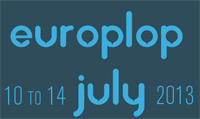





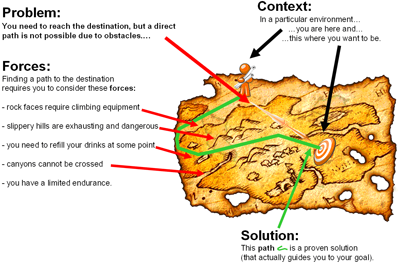 |
The path metaphor illustrates the relation between context, problem, forces, solution, and consequences. It has been developed in two parts:
Kohls, C. (2010). The Structure of Patterns. PLoP 2010 - 17th Pattern Languages of Programs conference. Writers’ Workshop version. Reno, Nevada.
Kohls, C. (2011). The Structure of Patterns - Part II: Qualities. PLoP 2011 - 18th Pattern Languages of Programs conference. Portland, Oregon.
...and consolidated to a practical guideline for pattern authors:
Kohls, C. (2012). The Path to Patterns. EuroPLoP 2012. - 17th European Conference on Pattern Languages of Programs. Irsee, Bavaria.

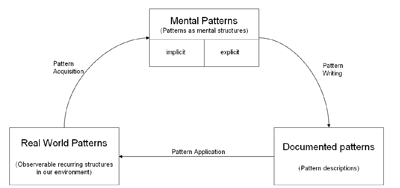 |
´ |
Kohls, C., & Panke, S. (2009). Is that true? Thoughts on the epistemology of patterns. Proceedings of the 16th Conference on Pattern Languages of Programs. Chicago: ACM.
Kohls, C., & Scheiter, K. (2008). The relation between design patterns and schema theory. Proceedings of the 2008 conference on Pattern Languages of Programs (PLoP). Nashville, Tennessee: ACM.

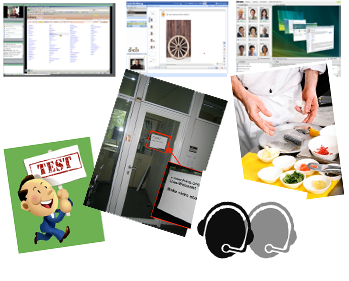 |
|
pattern ONLINE TRAINING. All other patterns are supporting this pattern and help to make
online trainings more alive. Some of the patterns are not exclusive for online uses, for
instance PREPARED EXAMPLE or TEST RUN. These patterns could be part of a pattern language
for trainings as well. They are included in this collection because they are important for online
settings particularly. Another example is PAUSE FOR QUESTION. This should be applied in
classroom education as well. But the present pattern description takes special forces into
account, i.e. online you have to plan more pauses due to the lack of any non-verbal feedback.
Kohls, C. (2009). A Pattern Language for Online Trainings. In A. Kelly, & M. Weiss (Eds.), EuroPLoP 2009. Proceedings of the 14th European Conference on Pattern Languages of Programs.

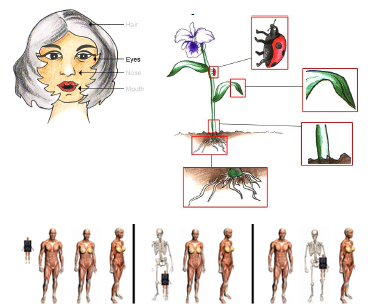 |

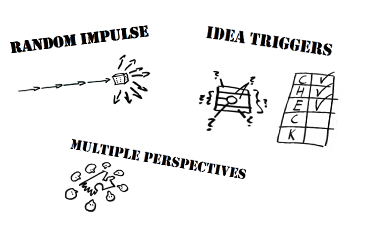 |
This is a new pattern language I am beginning to grow. It will eventually have about 50 patterns. The first patterns have been presented at PLoP 2012 in Tuscon, Arizona:
Kohls, C. (2012). Patterns for Creative Thinking. PLoP 2012 - 19th Pattern Languages of Programs conference. Tuscon, Arizona.

I have organized several pattern confereces and workshops as conference or program chair.
